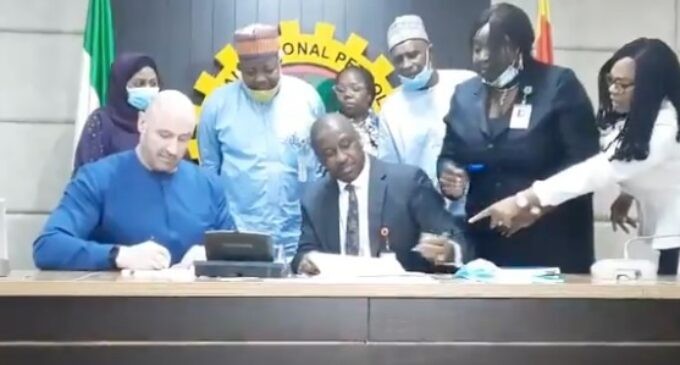
Ahmed Dikko, managing director of Port Harcourt refinery company (PHRC), signed for the refinery, while Davide Pellizola, signed for the Tecnimont SpA, contractor for the project.
In March, the Federal Executive Council (FEC) approved the sum of $1.5 billion for the rehabilitation of the refinery.
The approval had generated reactions from Nigerians with Atedo Peterside, founder of Stanbic IBTC and Anap Foundation, urging the government to subject the approval of $1.5 billion to “an informed national debate.”
Timipre Sylva, minister of state for petroleum, had said the rehabilitation will be done in three phases of 18, 24 and 44 months.
Sylva noted that the funding has three components from Nigerian National Petroleum Corporation (NNPC) internally generated revenue (IGR), Afreximbank and budgetary provisions.
“The Ministry of Petroleum Resources presented a memo on the rehabilitation of Port Harcourt refinery for the sum of 1.5 billion, and that memo was $1.5 billion and it was approved by council today,” he had said.
“So we are happy to announce that the rehabilitation of productivity refinery will commence in three phases. The first phase is to be completed in 18 months, which will take the refinery to a production of 90 percent of its nameplate capacity.
“The second phase is to be completed in 24 months and all the final stage will be completed in 44 months and consultations are approved.”
Mele Kyari, group managing director of Nigerian National Petroleum Corporation (NNPC), had also assured that the refinery will begin production in 18 months.
Pierroberto Folgiero, group chief executive officer of Maire Tecnimont, in a press statement, said the company is eager to keep on supporting a leading player in the area such as NNPC to develop Africa’s downstream sector.
“With this great result we confirm the soundness of our business strategy on geography diversification, as one of its key elements is to grow and assist our clients in their revamping initiatives, leveraging on our technological know-how to ensure more efficient and environmentally better performing processes and products. It represents a testament of our technological DNA, as we are strongly increasing our focus on initiatives for the modernization of the refining sector, such as these strategic rehabilitation works,” he said.
“Moreover, we enhance our footprint in Nigeria and in Sub-Saharan Africa, a market with excellent downstream prospects given its demographics and the necessity to unlock greater added value from the transformation of natural resources.”

